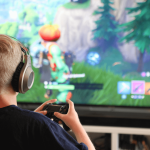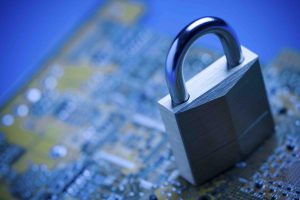Security cameras are an important layer of protection for businesses, homeowners, and other institutions. But in a world of increasing privacy concerns, some have called their purpose into question. Schools and offices are analyzing the need for indoor security cameras, wondering if they overstep the bounds of privacy.
So, are indoor security camera systems a source of vigilant protection, or an invasion of privacy? Read on to weigh out the truths of this complex question.
Why Do We Need Surveillance?
Luckily, property crime and burglary rates are on the decline. Still, there are many instances where these crimes do occur, and surveillance is an important element of preventing crime. An interview with nearly 100 seasoned burglars points out that security cameras were a major deterrent to breaking into a brinks home. Installing security camera systems has been associated with a major decrease in crime in neighborhoods like the Bronx. In addition, security cameras help to reduce auto theft by as much as 41 percent.
School Surveillance
Schools are another environment where surveillance has proven beneficial. Schools can be a major site of drug abuse, suicide, rape, robbery, and assault. Surveillance helps to monitor student activity and hold students accountable for crimes. Authorities can more easily track down sexual predators or even those committing petty theft. In the wake of school shootings and other violence, wireless security cameras are a vital part of crime prevention.
Other Benefits
Though crime reduction is a major benefit of security cameras, there are other important benefits, too. Security cameras help identify criminals, even if they don’t catch them right in the act. Surveillance is also used as a tool to monitor employee behavior and improve processes in the workplace. A company might use surveillance to rearrange the flow of a retail space or reward the most on-task employees.
Privacy Protection Concerns
With the rise of surveillance comes a backlash of public concerns regarding ethics and privacy protection. Government agencies like the National Security Agency and Department of Homeland Security are being rebuked for their potential intrusion of citizen privacy.
Surveillance Abuse
Surveillance certainly has the potential to be abused, by institutions and criminals alike. Because surveillance offers powerful tools like remote access, motion detection, and still image capture, there is potential for the wrong people to use the tools in the wrong way.
Discrimination
Groups like the ACLU have raised concerns about surveillance perpetuating discrimination in some circumstances. A business using surveillance to ward off criminals may focus more on monitoring and pressing charges against people of color, for instance.
Effect on Public Behavior
As behavioral studies show people, change the way they act when they know they’re being watched. This is an intended effect of surveillance. People who know they’re being watched will be on better behavior, reducing the likelihood of crime. But there are less desirable effects of this phenomenon. People who know they’re being watched might also act out of fear, avoiding doing certain good things that might raise suspicion.
Balancing Surveillance and Privacy
Though a wireless security camera can be a powerful tool for good, employee privacy rights and laws must be taken into consideration before systems are installed. Surveillance and security systems have rapidly become part of our everyday lives, and regulations must be in place to adequately address the public concern and protect individual privacy.
Incorporating Surveillance in Your Institution
If you’re a business or other institution thinking about installing indoor security cameras, educate yourself on laws and privacy concerns ahead of time. Think about ways the system might be abused, and then come up with policies to combat these potential problems.
Any institution anticipating privacy concerns will be well-equipped to manage the benefits and drawbacks of indoor surveillance. This cutting-edge technology can be an incredible force for good, and it’s the duty of anyone employing the technology to consider the rights of those the cameras are meant to protect.













